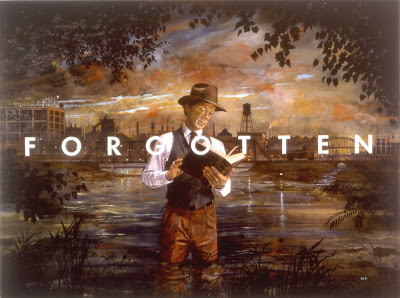
By Lawrence Shainberg.
I can’t believe I’m unusual, as a writer, in feeling the loss of Richard Pryor as of a crucial ally, a man whose work I turned to, year in and year out, as if to an intimate friend or, more to the point, the best medicine available for the various illnesses that bring a writer down – self-absorption, self consciousness and the illness he treated as no one else could, those inexplicable departures of humor that leave one’s work solemn and moralistic.
I was an unlikely disciple, for sure – a middle class southern white who grew up in the days before Martin Luther King, Rosa Parks, and others came along to show Whites how arrogant and ignorant we were, how much we lost by condescending to the Blacks who surrounded us. But it diminishes Pryor, in my view, to speak of him only as a black man. He was a man who’s work attests to what Jean Genet said, when someone suggested, during the days of the French-Algerian crisis, that he write a play about Blacks: “I’d love to do so, but first I have to know what color they are.”
Pryor used his blackness, for sure, and our whiteness, but he wiped away all color except that of life itself and the suffering it entails and our mysterious capacity to laugh at anything, even pain, when it’s fully inhabited. See him as a deer in the concert tape, consumed with thirst and leaning over water but afraid to drink because the woods are full of sound and every one an enemy approaching. See him as a heart attack victim, whose seized up heart has him literally by the throat, sinking to the ground and pleading, “Please let go! I’ll be good! I swear I’ll be good!” and hear his heart answer, “Good? What about all that pork you been eatin?” Finally, in the climactic scene from his concert tape, Live on Sunset Strip, see him as a burn victim, elated to hear that he’s about to be bathed for the first time since his accident until he feels the excruciation of a hand on his raw body: “don’t you… ever… touch me again.”
It’s important to remember that Richard Pryor, though he might be one of America’s greatest novelists, was writing non-fiction. His riffs came out of his own pain, fear or humiliation. His life had taught him everything about fear so great and unrelenting that it blocks your need to quench a thirst when water’s inches from your mouth. It was his own heart attack and his own catastrophic burns he re-lived on stage. He made us squirm as he made us laugh because we felt the pain he was laughing at as if it were our own.
Comedy, as we all know, can be undone by familiarity. Often as I’ve watched his tapes, there are often long stretches when, even if I continue to enjoy him, I do not laugh because I know what’s coming. Even so, there is one riff in the first concert tape that never fails to dissolve me. As a macho character from the old school of street fighting, he is confronted by a new breed young tough who’s trained in the Martial Arts. Brash and confident, dancing around him like Muhammad Ali, he bellows “bring it on!” or some such until a swift kick to the groin makes him double over slowly, and he sinks to the ground still bellowing, only now in a voice a couple of octaves higher. Why does this riff, unlike equally funny ones that don’t, make me laugh every time as if I’ve never seen it before?
It’s an insult to Pryor to treat of him intellectually or impute didactic purpose to him, but I think it’s because his fight in this case is topical and urgent. I never watch it without thinking of what’s come to be called “The War on Terror.” Pryor’s macho man is fighting the war we’re fighting today. His adversary, like ours, not only doesn’t play by his rules but is trained to use his aggression and power against him. But pause a moment before you see this riff as anti-machismo, anti-left, right, liberal or conservative. Remember that Pryor’s riffs came out of his life. It’s hard to doubt that he knew his share of this sort of street fights as well as the arrogant bluster that leads his Macho Man to defeat and humiliation. Such humiliation, however, doesn’t make him come back for more, with weapons or allies, but to take the sort of hard, painful look at himself that makes it possible to see his own shortcoming and absurdity. That’s the recipe for his comedy, the hard painful look, the honest appraisal of his own absurdity and the humility which allows him to treat of it with compassion. One does not walk away from his street fight thinking about the malice or power of the Martial Artist anymore than one walks away from the heart attack riff thinking about the malice and power of the heart. If one thinks about anything it is two human beings trapped in their own absurdity, facing off in a way that will ultimately bring the both of them down.
Pryor was always fighting a War on Terror but his terror wasn’t other people or an idea of evil he attached to them. It was the fear that paralyzed you in the woods, the aggression and pride and ignorance and egoism that got you into fights from which nobody benefited and everyone got hurt. In other words, his terror was the human condition itself – the body and the pain to which it’s vulnerable, aggression and pride and paranoia, fear and habit and danger so vividly imagined that you’d sooner die of thirst than ignore it. For Pryor, life is the terrorist, and blacks and whites, rich and poor, powerful and powerless, Christians, Muslims, and Jews, terrorists of every sort, suffer its threat alike. The ultimate protection will not be found in fists but in the magical purification we experience when we find our way to the humility and compassion that makes it possible to laugh at ourselves.
Here’s how Pryor found his way to it when after his heart attack he woke up in the ambulance taking him to the hospital and found himself surrounded by white attendants: “Goddamn! I done died and wound up in the wrong heaven. Now I got to listen to Lawrence Welk the rest of my days.”
Lawrence Shainberg is the author of Crust.















































